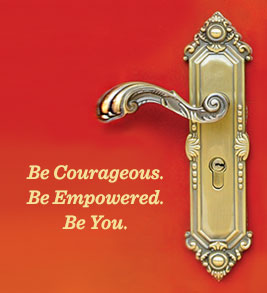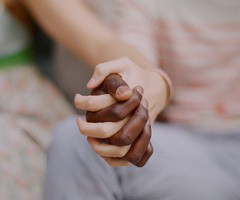I saw this post on Freshly Pressed. I thought it was great and wanted to share it here. Please click on Queer Confessions to read more from this great blogger.
I remember the first time I came out to anybody. I was a socially awkward fifteen year old boy living in Texas. I had no athletic prowess to boast, and my musical tastes were closer to my father’s than to my peers. For three years, I kept my sexuality a secret from everybody because I was terrified of being gay. I didn’t know any other gay kid or adult, so I felt lonely and misunderstood. The only thing that scared me more than my solitude was the very real possibility that others could hurt me with their words or fists if they found out that I preferred boys over girls.
At fifteen years old, I decided that I had lived under fear long enough. There was a reality show on TV back in 2001 that documented the lives of average high school students, including one gay youth; his visible gayness gave me the courage to share my secret with one person. When I came out to a friend in my youth group, I was frightened that he would make my life a living hell – and because my friend was the most popular youth in our very large church, he had the means to do so. But he did not make my life miserable; he said, “Thank you for telling me. This doesn’t change who you are. You are still my friend.”
That was almost 12 years ago, and since the winter of 2001, I have mastered the art of coming out to friends, coworkers, and family. I have told my conservative, evangelical friends about my sexuality, and I have come out to my liberal friends and colleagues. I have come out in intimate conversations and in public speeches before large crowds. I have come out to straight neighbors and gay neighbors, rich friends and poor friends, Christian friends and doubting friends; by and large, I am a better man for being honest about myself. I feel better knowing that I can be my true, genuine self around my peers, because I do not have to hide something that is a profound part of my existence. I can simply be, and I can simply be gay.
My friends remind me that I am a brave man for coming out. A friend of mine regularly tells me, “You are the bravest, most courageous person I know;” this same friend has a story of being delivered by the grace of God from a life of crime (including murder), counterfeiting money, gang banging, and homelessness. Another friend said that my decision to tell my story to a crowd of evangelical Christians numbering over 200 was, perhaps, the bravest thing he ever saw a person do. These comments puzzle me; I am simply being honest. Aren’t Christians supposed to be honest? And yet, in this society, honesty is bravery; it takes courage to tell the truth.
Two realities – one societal, and the other personal – remind me why it is so important for my LGBT brothers and sisters to come out and make their sexualities known to their network of friends and colleagues. Extremists from the far right will call us monsters, abominations, and sick perversions; their subordinates will tacitly (or not so tacitly) agree with them. The extremists are content to shove us into boxes made of fears based on ridiculous stereotypes and assumptions, and they cannot see LGBT people as such – people. When we come out, we force all our neighbors to see that we LGBT people are their neighbors, their sons and daughters, their mothers and fathers, their brothers and sisters, their aunts and uncles and cousins. We show the world that we are their teachers, doctors, accountants, scientists, politicians, theologians, preachers, dancers, musicians, and athletes. We show the world that LGBT people, like our straight brothers and sisters, can have hope, can believe in God, can walk in faith and not by sight, can embrace a peace that surpasses all understanding. We show our enemies and allies alike that we are human like them: we breathe, we eat, we laugh, we cry, we hope, we dream.
However, I am constantly reminded two days a week why I must be out and why making my sexuality visible is so vital to my well-being. I work in a church that is hostile to the LGBT community, where the parishioners will sometimes make overtly homophobic comments, where I would be fired if the leadership knew my sexuality. I do feel like I live two lives – my normal life at home where I can be out with my friends and school colleagues, and a closeted life (although the closet is transparent) where I am trapped in fear and isolation. Because I am not out to anybody in my congregation, I feel like I have no connection to anyone, for I cannot truly be myself with those people. It’s enough to make me want to leave the church (but not the one, holy, apostolic Church); for the sake of genuine relationships and my own health, I must be honest about myself to my neighbors and friends.
If you are an out and proud LGBT person, I celebrate you and your courage!
If you are a closeted or partially closeted LGBT person, I am with you. Stay strong, and may you one day find a safe place to leave that prison of fear.
If you are a straight ally, thank you of your support and love. We need you as friends and advocates.









